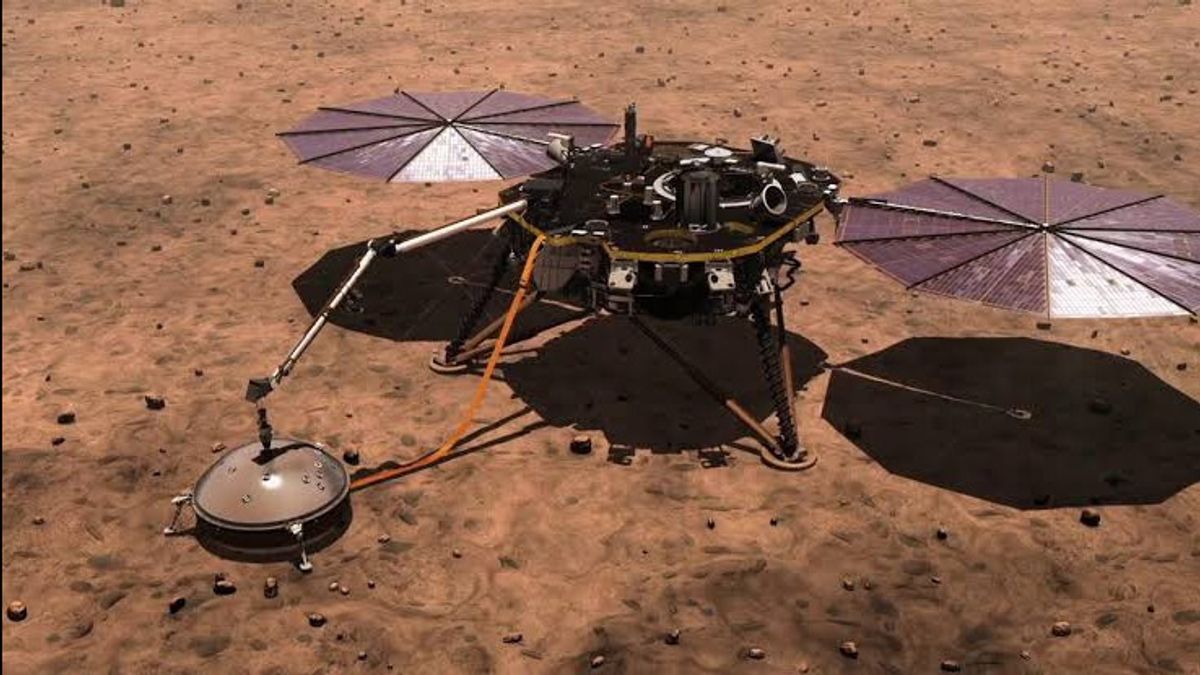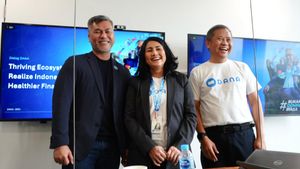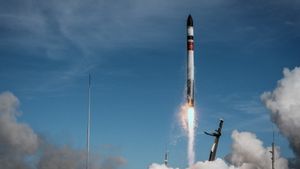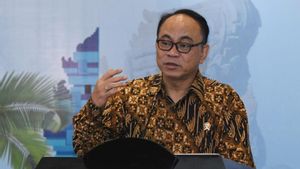
JAKARTA - The effects of dusty solar panels and darker skies are expected to end the InSight lander mission to Mars sometime later this year.
InSight was recently found to be gradually losing power and is expected to end science operations later this summer. In December last year, the InSight team estimated the landing robot was no longer operational.
So far InSight has detected more than 1,300 mars earthquakes, the most recent of which was a magnitude 5 on May 4 and is located in earthquake-prone areas of the Red Planet.
With lander robots that detect earthquakes, scientists can use the information gathered from these earthquakes to measure the depth and composition of Mars' crust, mantle, and core.
In addition, InSight has also recorded invaluable weather data and studied remnants of the ancient magnetic field on Mars.
"InSight has changed our understanding of rocky planetary interiors and set the stage for future missions. We can apply what we have learned about the inner structure of Mars to Earth, Moon, Venus, and even rocky planets in other Solar Systems," said the director. NASA's Division of Planetary Science, Lori Glaze, as quoted from the NASA website, Wednesday, May 18.
For information, InSight landed on Mars on November 26, 2018. Equipped with a pair of solar panels measuring about 7 feet (2.2 meters) each, it is designed to achieve the mission's primary science goal in the first year of Mars (nearly two Earth years).
Having accomplished its mission, the spacecraft is now on an extended mission, but its solar panels have generated less power as it continues to accumulate dust.
Due to reduced power, the team will soon put the lander's robotic arm in a resting position for the last time later this month. It was originally intended to deploy the lander's seismometers and heat probes, as the robotic arm had already played an unexpected role in the mission.
Along with using them to help bury hot probes after the sticky Martian soil challenged the probes, the team used the arms in an innovative way to remove dust from solar panels. As a result, seismometers can operate more often than they should, leading to new discoveries.
When InSight landed, the solar panels were generating about 5,000 watt-hours daily on Mars, or enough soles to power an electric oven for an hour and 40 minutes. But now, the robot only produces about 500 watt-hours per sole, enough to power the same electric oven for only 10 minutes.
Furthermore, due to seasonal changes starting at Elysium Planitia, InSight's location on Mars, there will be more dust in the air, reducing sunlight and lander energy.
SEE ALSO:
“We had been expecting dust-cleaning as we've seen it happen several times with Spirit and Opportunity explorers. It's still possible, but the energy is low enough that our focus is on harnessing the science we can still gather," said InSight principal investigator at NASA's Jet Propulsion Laboratory, Bruce Banerdt.
If only 25 percent of the InSight panels were swept away by the wind, the lander would gain about 1,000 watt-hours per sole, enough to continue accumulating science. However, at currently declining power levels, InSight's non-seismic instruments will rarely be powered on after the end of May.
Energy is prioritized for the landing seismometers, which will operate at certain times of the day, such as at night, when winds are low and earthquakes are easier for the seismometer to hear. The seismometer itself is expected to go off by the end of the summer, ending the science phase of the mission.
By then, the lander would still have enough power to operate, take occasional shots and communicate with Earth. But the team predicts that around December, the power will be low enough that InSight will one day stop responding.
The English, Chinese, Japanese, Arabic, and French versions are automatically generated by the AI. So there may still be inaccuracies in translating, please always see Indonesian as our main language. (system supported by DigitalSiber.id)








